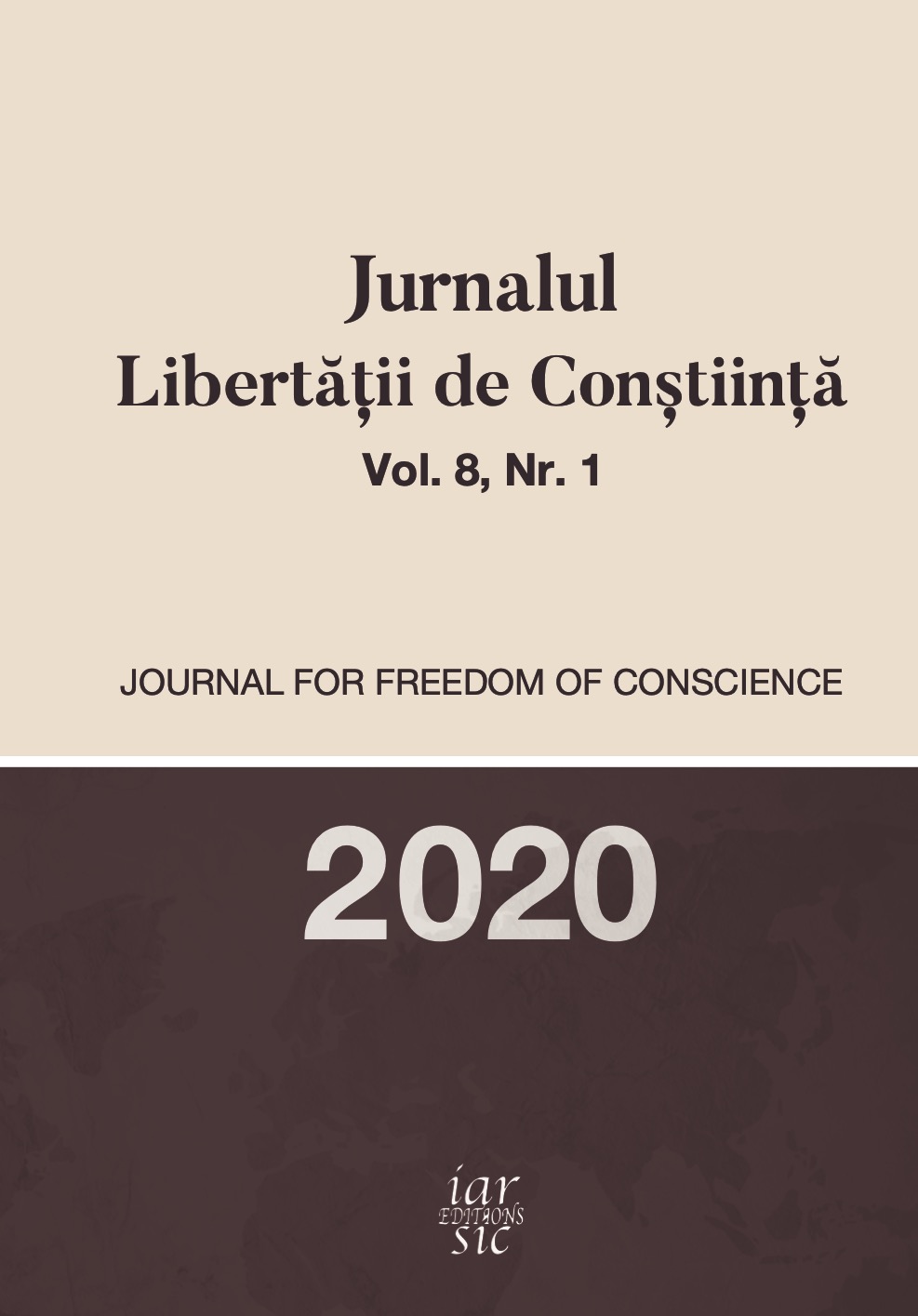INTEGRITATEA ECLEZIALĂ ȘI SOCIALĂ CA EXPRESIE A LIBERTĂȚII DE CONȘTIINȚĂ
Ecclesiastical and Social Integrity as Expressions of Freedom of Conscience
Author(s): Mihai HimcinschiSubject(s): Christian Theology and Religion, Theology and Religion, Eastern Orthodoxy
Published by: Editions IARSIC
Keywords: integrity; freedom; conscience; Church; society; mission; salvation;
Summary/Abstract: Having kept intact the teaching about intra-trinitarian relations, Orthodox ecclesiology teaches that the Church belongs to the tri-hypostatic God. It is the realization of the trinitarian way of true life, even if it was founded by the Saviour. Moral, ethical, and social integrity cannot detach itself from this trinitarian model of having a balanced life and a freedom of conscience historically articulated in God’s incarnated Son. Byzantine theology is a culture of ecclesial experience whose prototype is the Trinity: The Father, the Son, and the Holy Spirit. The head of the Church is Christ; the soul of the Church is the Holy Spirit, who also is the factor of unity between us, and between ourselves and God. This is the essence of the Church, our life in communion with the triune God. It is the reciprocal interiority of those who are within the reciprocal interiority of the Persons of the Holy Trinity, an interiority brought to us by Christ, the God-man. And, being based on this reciprocal interiority, the believer can morally perfectionate, achieving both the consistency of his or her integrity and a freedom of conscience without oppression and without cancelling his or her free will.
Journal: Jurnalul Libertății de Conștiință
- Issue Year: 8/2020
- Issue No: 1
- Page Range: 499-510
- Page Count: 12
- Language: Romanian

